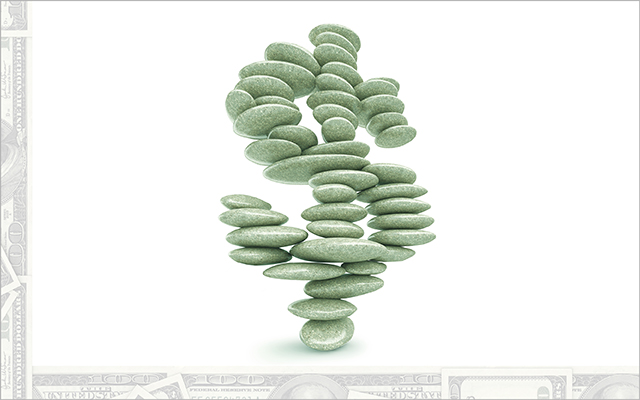Socially responsible investing (SRI) is not a new concept. In biblical times, Jewish laws dictated that all business investments should support the entire community. In the mid-1700s, U.S. Quakers refused to profit from companies with relationships to the slave trade. Even today, the Religious Society of Friends, the official organization of the Quaker faith, doesn’t invest in any companies that make implements of war or are involved in alcohol, tobacco and gambling.
The seeds for socially responsible investment opportunities for the general public were sown in 1967, when Luther Tyson was working in Washington, D.C., on peace, housing and employment issues for the Society of the United Methodist Church. Tyson received a letter from a woman in Ohio that asked a simple question: “Is there a mutual fund that will manage my pension money without investing in war-related industries?” Intrigued, Tyson did some research and was surprised to learn that the answer was “no.”
A year later, he decided that it was time to create a fund that answered the needs of investors like the woman from Ohio. Tyson and his partner, Jack Corbett, then launched Pax World Fund in August of 1971. It was the first broadly diversified, publicly available mutual fund to use social as well as financial criteria in its investment decisions.
The public profile of socially responsible investing rose again in the 1980s, when college students across America urged their universities to divest any investments that profited from South African apartheid. Currently, dismay over Wall Street corruption has compelled even more people to begin investing according to their moral principles. “Anecdotally, we are seeing more people who have issues with corporate governance,” says Elizabeth Laurienzo, a spokesperson for Calvert, the largest family of socially responsible funds in the United States, with approximately $9 billion under management. And this interest isn’t confined to Calvert; the number of socially responsible mutual funds has grown from a handful to approximately 200 in just 10 years.
Screening, Shareholder Activism, and Community Investing
People who want to invest according to their values have three primary options: screening, shareholder activism and community investing. When an investor practices screening, he or she chooses securities and mutual funds based on social or environmental criteria that match his or her values or interests. For instance, some people exclude weapons manufacturers, while others avoid companies that perform animal testing, profit from pornography, or pollute the air and water. A growing number of investors also employ what is known as “positive screening,” whereby a stock is chosen by a fund manager based on its laudable contributions to the issues they care about, such as progressive employment policies and manufacturing processes that don’t harm the environment.
A growing number of social investors believe that they can also make a difference by buying stock in not-so-perfect companies and then flexing their collective shareholder muscles to advocate for issues that concern them. An example of shareholder activism pointed to by many socially responsible organizations was The Home Depot’s decision in 1999 to phase out the sale of old-growth timber. Domini Social Investments is currently engaged in extensive discussions about global labor compliance with companies such as Gap, McDonald’s, Nordstrom, Sears and Walt Disney. Their efforts have also resulted in a commitment from both Pepsi and Coca-Cola to include recycled material in their plastic bottles.
A growing number of social investors believe that they can also make a difference by buying stock in not-so-perfect companies and then flexing their collective shareholder muscles to advocate for issues that concern them.
People interested in a more direct social return can opt to invest in community-development banks and credit unions that support their neighborhoods by offering low-interest loans to those who normally don’t qualify for credit. “We invest in people,” says Jean Pogge, senior vice president of mission-based deposits at Chicago-based ShoreBank, the first and leading environmental and community-bank corporation in the United States. “We look beyond the numbers and focus on a person’s character and desire to pay back the loan.”
In 1997, ShoreBank joined with Ecotrust, an environmental nonprofit organization, to create ShoreBank Pacific. Committed to environmentally sustainable community development, ShoreBank Pacific employs a staff scientist to help customers improve their environmental footprint.
Among the businesses financed by ShoreBank Pacific is a dairy farm undergoing a three-year transition to organic certification, and CarSharing Portland, an hourly car-rental company for people who occasionally need a car but don’t want to (or can’t) own one. Perhaps the main advantage of community investing is that people can actually see their money at work. “You know your money is being used to match your values,” says Pogge. “And you’re getting FDIC insurance and competitive interest rates.”
Benefits and Considerations
Because socially responsible fund managers typically apply rigorous standards to their investments, they do substantial research on every company. The result, says Todd Larsen, media director of the Social Investment Forum, is cleaner investments. “Socially responsible funds seek to limit liabilities that can accrue through environmental and social lawsuits,” he says, adding that socially responsible mutual funds are more likely than their mainstream counterparts to receive four- or five-star ratings from Morningstar, Inc., the Chicago-based research firm that evaluates mutual funds. Calvert’s Laurienzo agrees. “Investors are accepting the fact that by choosing companies that practice good governance and pay attention to the environment, they will deliver the best value in the long run,” she says.
“Socially responsible funds seek to limit liabilities that can accrue through environmental and social lawsuits.”
Are there any downsides to socially responsible investing?
According to the personal-finance Web site the Motley Fool (www.fool.com), the biggest problem with SRI funds is that their fees and expenses can be higher than comparable non-SRI funds. “While these fees presumably reflect the additional cost of social screening, investors should definitely compare the fees and expenses of different SRI funds, since some are simply too expensive,” according to the Web site. As with any investment strategy, it’s also important to understand the risks involved. Check Morningstar or other financial research resources to evaluate every investment you make.
Also keep in mind that for most people, purity is a matter of perception. A company that manufactures weapons, for example, could also be a leader in progressive employment practices. Likewise, one that recycles plastics could also be a major polluter. As with most decisions in life, the investments you make are a matter of personal choice.
There are several ways to begin making your money work for the causes you care about. You can open a checking account or buy a CD at a community bank. If you have a financial adviser, tell him or her about your interest in SRI. If your adviser has no experience with SRI, the Social Investment Forum (www.socialinvest.org) has an online database of socially responsible financial advisers in your area. (See sidebar for other resources.) Employees whose investments are managed through a company retirement plan can contact the human resources or benefits department to see if they offer a socially responsible option. If they don’t, ask them to consider doing so. Finally, people who manage their own finances can cut out the middleman and buy socially responsible financial products directly through Domini Social Investments (www.domini.com).
Whether you’ve been stashing money under the mattress, or stashing it in investments that leave you with a not-so-great feeling, SRI offers you an opportunity to make more conscious decisions about what your money is doing and saying on your behalf. If you have never invested before, SRI just may give you a good reason to start.
Peak SRI Performers
Want to get started with SRI? Here are a few of the more established names in the business:
- Calvert (www.calvert.com)
- Citizens Funds (www.efund.com)
- Domini Social Investments (www.domini.com)
- Green Century Funds (www.greencentury.com)
- Parnassus Investments (www.parnassus.com)
- Pax World Funds (www.paxworld.com)
Each offers a range of products, from money-market funds to stock and bond funds.
When we first covered socially responsible investing (SRI) in our March 2004 issue, Piper Jaffray requested copies of the article for its employees and clients. Since then, public interest in SRI has continued to grow. And as the interest from Piper Jaffray suggested, individuals aren’t the only ones seeking to blend stock picks and social concerns, says Todd Larsen of the Social Investment Forum. In the wake of Enron’s collapse and other corporate ethics scandals, institutional investors, too, are eyeing companies’ records on environmental, ethical and social-justice issues.
And for good reason: In August 2005, The Wall Street Journal reported that since year-end 2000, SRI fund assets were up 137 percent, “easily outpacing the 24 percent asset growth for all stock and bond mutual funds.” For more current SRI numbers, see the Social Investment Forum’s “2005 Report on Socially Responsible Investing in the U.S.,” available at www.socialinvest.org.
For more on making fiscally aware decisions, read “The Mirrors of Your Spending” and “Smart Money“. For more on the connection between consumer market behavior and a healthy way of life, see “Are You Living LOHAS?.”
The past few years have been trying for investors. Many Americans have had to rethink their futures, watching as the worst bear market in a generation ate retirement and college funds alive. To add insult to injury, the guys in Wall Street’s corner offices don’t appear to feel the pain. Multimillion-dollar bonuses, improper trading of mutual funds – the greed and corruption alone are enough to make the underside of a mattress seem like the most ethical and reliable place to park your hard-earned savings.
Thankfully, though, it doesn’t need to come to that. Today, the rising popularity of socially responsible investing (SRI) is proving that you don’t have to compromise your values in order to earn a solid (and sometimes even spectacular) return on your investment. Also called “socially conscious” or “values-based” investing, SRI is based on the idea that social and moral criteria should play a vital role in evaluating investments.
According to the Social Investment Forum, a national nonprofit organization dedicated to promoting the practice of SRI, socially responsible assets currently total $2.16 trillion. What’s more, SRI portfolios grew an average of 7 percent between 2001 and 2003, the same period that the broader universe of all professionally managed portfolios fell 4 percent. Many giant pension funds for teachers, government workers, unions, religious institutions and foundations regularly follow socially responsible criteria to guide their investment decisions. And many large financial companies, such as Solomon Smith Barney, Fidelity, Merrill Lynch and Charles Schwab now offer socially screened mutual funds.




This Post Has 0 Comments